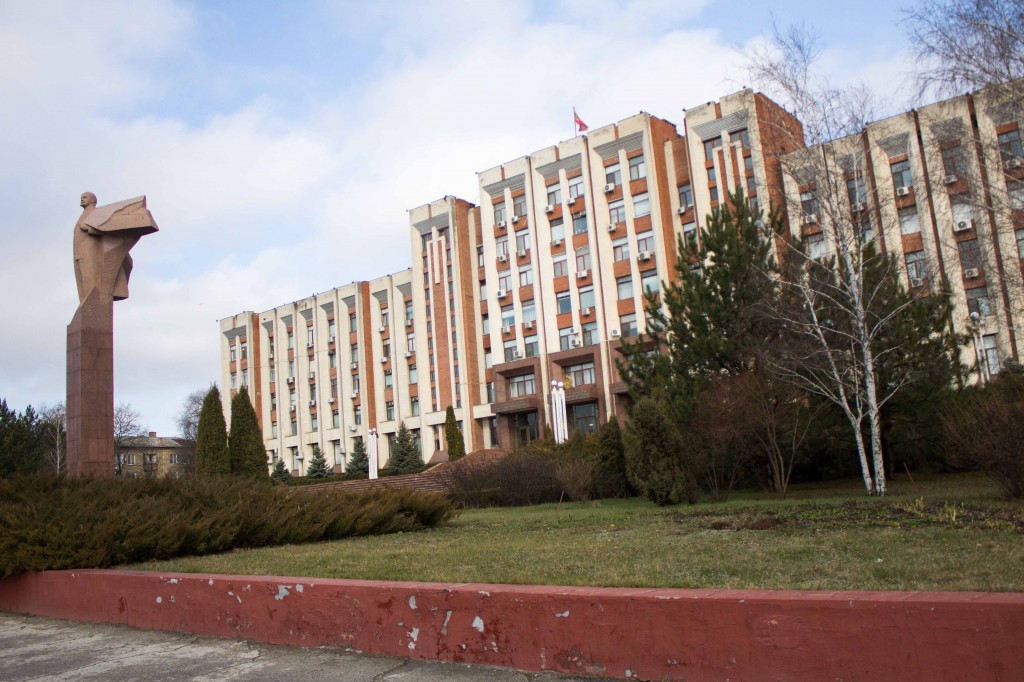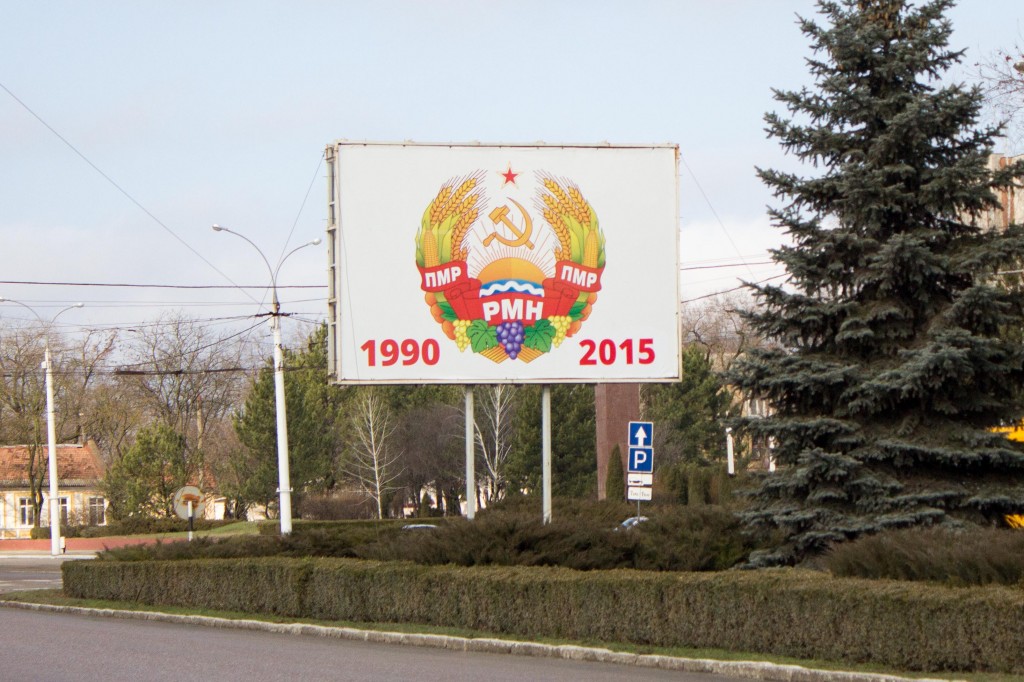 Russia’s financial support for Transnistria, designed to to buy Moscow political leverage to shape the breakaway state’s foreign policy direction, is at risk of drying up. In spite of a pervasive pro-Russia narrative among locals, the government in Tiraspol is now looking west to foster its economy. Matthew Walker gives a personal perspective.
Russia’s financial support for Transnistria, designed to to buy Moscow political leverage to shape the breakaway state’s foreign policy direction, is at risk of drying up. In spite of a pervasive pro-Russia narrative among locals, the government in Tiraspol is now looking west to foster its economy. Matthew Walker gives a personal perspective.

The tiny breakaway republic of Transnistria has fond memories of the Soviet Union. Its national crest bears the hammer and sickle, statues of Lenin maintain an imposing presence throughout its capital city, and nationalistic slogans on billboards glorifying the motherland are common. But for the first time since Transnistria achieved de-facto independence from Moldova following a bloody battle in the 1990s, financial support from Russia is at risk of drying up.
While it is difficult to verify exact figures, Moscow reportedly injects around $100 million a year into the Transnistrian economy, mostly to provide welfare services like the so-called ‘Putin pension’ as well as significant inducements to prop up the Transnistrian armed forces. This annual donation represents about 70 percent of the total Transnistrian budget.
When I visited Transnistria’s capital Tiraspol recently, not only was I struck by the Soviet nostalgia on display, I was also surprised by the visible presence of pro-Russian slogans on the street that pledged loyalty to Moscow and linked the Russia-Transnistria relationship to the sustainability of the breakaway state.
It was easy to get swept up by this pro-Russian narrative, the locals in Tiraspol were proud of their city and keen to explain the success of their struggle for independence. The streets in Transnistria appeared cleaner than they were over the border in Moldova, public transport was well serviced, community amenities were generally well maintained, and a new hospital was being built, financed by Russian humanitarian funds.

Russia’s financial support for Transnistria is designed not only to deliver better public services to the population, it is intended to buy Moscow political leverage to shape the breakaway state’s foreign policy direction. But if Russia does reduce its financial support for Transnistria, it could force the hand of Tiraspol’s ruling elite to turn to Moldova and the EU in search of a long-term solution to its economic woes.
A signal of Tiraspol’s openness to working with its neighbours was on display earlier this week when Transnistrian president Yevgeny Shevchuk met with the new Moldovan prime minister Chiril Gaburici to discuss strengthening dialogue on issues of mutual economic importance. For Moldova, resolving the ongoing conflict with Transnistria is an important priority if it is to be considered a genuine candidate for future EU membership.
More broadly, it is surely a curious move for Moscow to slash financial support for a pro-Russian enclave flanked by Ukraine to its east and Moldova and the EU to its west if Russia’s foreign policy objective is to strengthen its sphere of influence in the region in the name of protecting its diaspora.
Perhaps Russia’s current domestic economic troubles, resulting from its more recent quest to protect its diasporas in Crimea and Ukraine, has forced Moscow to make a tough call and shed some of its financial baggage left over from the Soviet Union? This may also have broader ramifications for other pro-Russian enclaves that have relied for years on financial support from Moscow.
A common theme that emerged during my conversations with locals in Tiraspol was the role of Soviet nostalgia and Russian nationalism delivered by the government as the glue to bind the ethnically diverse population together under the one independent republic.
Slogans and nationalism serve a strategic function for the government in Tiraspol, but it may be this very dependency on Moscow that could force the breakaway state to reorient itself towards the west to survive. If Transnistria does alter its economic direction towards the west, the breakaway state may be confronted with the uncomfortable dilemma of having to explain its move away from Moscow while also attempting to justify the legitimacy of its claim for independence from Moldova.
The extent to which Moscow is prepared to bankroll Transnistria, and other pro-Russian enclaves into the future, is unclear. What is clear, however, is that Russia’s domestic economic challenges have had an impact on its aspirations to re-establish a sphere of influence throughout the former Soviet Union.
Note: This article gives the views of the author, and not the position of LSEE Research on South Eastern Europe, nor of the London School of Economics.
_________________
Matthew Walker is an MSc candidate in the LSE’s global politics programme. Originally from Melbourne, Australia, Matthew is a keen Russian speaker with academic interests in secession in the former Soviet Union, and Russian and CIS politics. He is on Twitter @walkerswalking.


